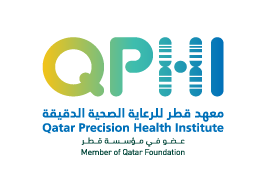
PPM 03-0324-190038
| Project Information |
|---|
Proposal Number : PPM 03-0324-190038 Program Cycle : PPM 03 Submitting Institution Name : Hamad Bin Khalifa University Project Status : Award Active Start Date : 1/3/2020 Lead Investigator : Prof. Omar Albagha Project Duration : 3 Year(s) End Date : 11/9/2023 Submission Type : New Proposal Title : Personalized care for Qatari patients with genetic predisposition to hypercholesterolaemia: better prediction, diagnosis and management |
| Project Summary | |||||||||||||||
|---|---|---|---|---|---|---|---|---|---|---|---|---|---|---|---|
Proposal Description: Background: Familial Hypercholesterolemia (FH) is a common inherited cause of raised cholesterol (hypercholesterolemia), causing early heart disease and early death. This can be effectively prevented by taking cholesterol-lowering medication. It is estimated that between 1 in 250 and 1 in 500 of the world population are affected by FH. The World Health Organization has recognized FH as a public health concern since 1998. However, most of the people with FH are not identified and remain untreated. Without appropriate cholesterol-reducing treatment, such as statins, these individuals can develop early coronary heart disease (CHD) with up to 50% of men likely to develop CHD by age 50 years and 30% of women similarly affected by age 60 years. Current international guidance recommends doctors find patients who may have FH, by looking for raised cholesterols and checking their family histories and then referring them to specialists - for genomic testing to confirm the diagnosis and start treatment. As well as identifying FH, genomic tests can identify polygenic or multiple genes causing raised cholesterol, which can also cause an increased risk of CHD but usually at an older age. The test can also indicate if a patient is at risk of side effects to statins, one of the commonest used groups of cholesterol-lowering medication. The side effect of statins includes weakness of the muscles, particularly in the legs. Hence the genomic test identifies the cause of severe hypercholesterolemia and best ways to treat this, in other words, more tailored or precision medicine. However, current genomic tests are developed to the profile of the Western population. A tailored approach for the Qatari population needs to be developed and evaluated to assess if it improves the identification of causes of severe hypercholesterolemia and to assess how useful it is to include a test for statin side-effects. The study’s overall aim is to answer the question: Can the identification and management of severe hypercholesterolemia be improved in the Qatari population by using better case finding tools and Qatari-specific genomic tests. Design& Methods: In the first part of the study, the genomic characteristics of FH that are relevant for the Qatari population will be identified, leading to the development of a genomic test specifically designed for the Qatari population. In the second part of the study different FH case-finding tools will be assessed to identify patients that need genomic testing. Patients with a positive FH result will then be referred to a specialist. Six months after the genomic test have been sent back to the patient and their clinician, the proportion of patients identified with genetically-confirmed FH will be compared, and those with polygenic hypercholesterolemia, using each tool, and impact of genomic testing (including a test for statin side-effects) on medication is given and cholesterol levels. Most of this information will be collected from genomic laboratory and hospital records. Expected outcome: The prevalence and genetic architecture of FH will be determined in the Qatari population. A comprehensive Qatari-specific gene panel for genetic testing of FH will be developed. Different precision medicine strategies for identification and management of FH will be evaluated and the optimal strategy will be identified. Impact: the findings from this project will be useful clinically in assessing patients with FH and identify those with a high risk of inherited forms for genetic testing using Qatar-specific panel for delivering better diagnosis and intervention to prevent the development of CHD and associated complications. Research Area Keywords: Hypercholesterolemia; Genetic epidemiology; Pharmacogenetics; Personalized medicine; Genetic testing Research Area Keywords: Functional genomics; Statin; Genome; Gene panel ; Precision medicine Research Type Translational Research / Experimental Development
|
| Project Summary | ||||||||||||
|---|---|---|---|---|---|---|---|---|---|---|---|---|
|
| Personnel | ||||||||||||
|---|---|---|---|---|---|---|---|---|---|---|---|---|
|

